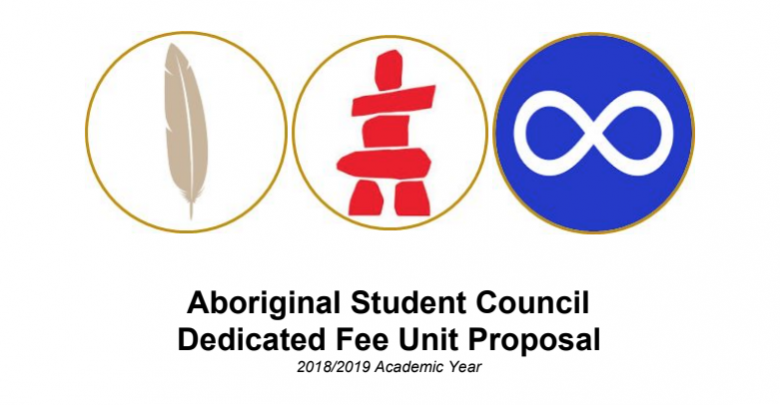 supplied
suppliedAfter questions and criticism at this week’s forums, the Aboriginal Student Council referendum “Yes” side campaign has released an extended version of their original platform document. The new document strives to tackle the concerns raised, and it’s worth examining them.
The first, change is an update to the maximum amount of revenue the DFU would bring in. The extended document uses the 2018/19 Annual Undergraduate Enrolment Report, instead of the 2017/18 report; thus, the total maximum revenue has changed to just under $93,000. The proposal has also added a disclaimer that this amount is a projection, as it’s impossible to account for opt-outs. The disclaimer also notes that the enrolment report doesn’t break down total student enrolment by fall, winter, or spring/summer semesters, thus making the projection even more difficult to predict.
While the disclaimer certainly clears things up, it’s important to still consider that the total amount of revenue the ASC would receive through this DFU would likely be much less that $93,000.
The document also helpfully includes a breakdown of the allocations of the DFU revenues in both percentage and dollar amounts. The DFU revenue would have:
- 25 per cent going to cultural supports;
- 25 per cent going to education;
- 20 per cent going towards awards;
- 17 per cent going towards the child care subsidy;
- And 13 per cent going towards operational costs.
Other added information includes how the Students’ Council Finance Committee provides oversight on all DFUs, including requiring financial documentation from student groups with DFUs, as well as reviewing yearly reports on the collection and distribution of DFU funds. ASC notes that they would be subject to the same scrutiny as other DFUs, and plan to hire a consulting firm to conduct yearly audits on their finances if the DFU passes. This is great and important context for people who don’t know how DFU funds are allocated, and shows that there would be accountability from the SU.
The only thing that seems to be missing, however, is the make-up of the ASC board providing direct oversight on the fee. According to Bylaw 6100, DFUs must typically submit a petition to the SU Bylaw Committee after their initial proposal is accepted. That petition must include a description of the composition of the board overlooking the administration of the fee.
DFU questions can skip this step, however, as long as the referendum question satisfies all information required for the petition question — which includes the the composition of the oversight board.
According to Bylaw Committee minutes, the committee approved the proposal, skipping the petition process. Despite this, no discussion around a financial oversight board occurred before the referendum question was approved, and Students’ Council failed to ask questions regarding the absence of such a mention of the board. Thus, the referendum question passed despite its failure to address a financial oversight board in its text or its drafting process.
While there were murmurings of what the board could look like at the first SUBStage forum, those murmurings didn’t make it into the extended document.
With their new document, it’s clear that the ASC wants to show people they take financial accountability seriously. However, they have still failed to provide an important part of that puzzle, a fumble it seems the Students’ Council is responsible for.




